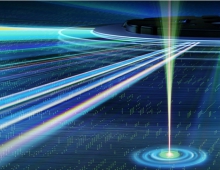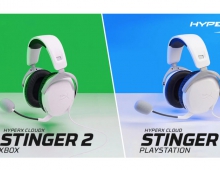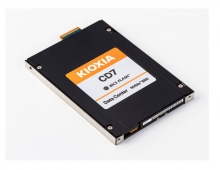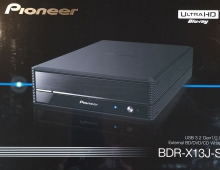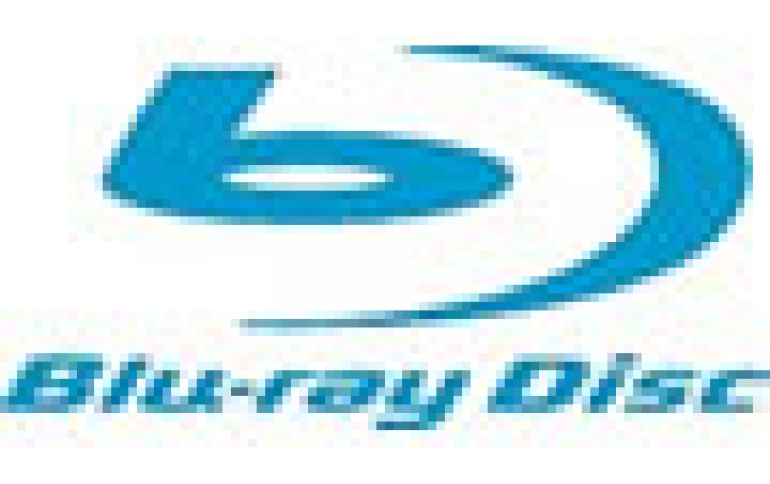
HP Pressures Blu-Ray Camp
Hewlett-Packard Wednesday asked the Blu-ray Disc Association to make it easier for consumers to transfer movies from a DVD to a home network, an option seen as essential to consumer adoption of any high definition DVD format.
The appeal came on the same day Forrester Research predicted that Blu-ray would eventually win the war, but that consumers, hungry for digital content, would look elsewhere for video and take longer to embrace high-definition DVDs.
Blu-ray's rival format HD DVD features a standard known as "mandatory Managed Copy," which will allow a consumer to make a legal copy of their DVD and store the digital file on a home network. The movie can then be moved from a computer screen to a television and other authorized viewing devices on the network. In addition, HP asked the Blu-Ray Disc Association (BDA) to include the iHD technology as part of its format specification.
The interactive functionality layer (iHD) was developed by Microsoft and Disney. Blu-ray has currently adopted Blu-ray Disc Java (BDJ) as its interactive layer; iHD is based instead on XML. The iHD technology provides consumers with enhanced content, navigation and functionality for HD films. Microsoft plans to implement iHD support in its Windows Vista operating system.
Blu-ray has much stricter content protection rules that allows studios to lock their movies to the disc, preventing any copying.
That stricter standard is favored by Hollywood studios, which are afraid of piracy. But companies such as Microsoft, Intel and HP are marketing hardware and software that enable home networking, a feature believed to be desired by most consumers.
"It's critical that we have the ability to move content around the home," said Maureen Weber, HP's general manager of personal storage. She was in Los Angeles Wednesday presenting the company's case to the Blu-ray board.
The announcement of Microsoft and Intel to back the rival HD DVD standard prompted HP to push Blu-ray to adopt the more lenient copy protection mechanisms.
Weber said Wednesday that it was "critical" that PCs running Microsoft's operating system support Blu-ray drives.
"We were hopeful there wouldn't be a format war," Weber said. "With Microsoft and Intel announcing support and with Chinese manufacturers allowing low cost players in the market, we know there will be a format war. We're trying to broker an olive branch here."
Mark Knox, a spokesman for the HD DVD camp noted that HP was "advocating consumer-friendly features that have long been a part of the HD DVD format."
Microsoft corporate VP for the Media Entertainment Technology Convergence group, Blair Westlake, said, "HP is a valued partner and we believe their call for a unified format that ensures PC and connected device interoperability is in the best interest of consumers and the industry. We stand behind our original reasons for backing HD DVD - that there are features for consumers and content owners we believe are required in the next generation optical format, and that HD DVD has committed to those criteria. We'd like to see Blu-ray do the right thing and commit to these scenarios, avoiding a protracted format war that benefits no one. Our consistent goal is to ensure that those benefits come to life in the most rapid, cost efficient, consumer friendly way possible."
Until recently, the six major studios were evenly split between supporting the two rival next generation DVD formats. That balance was disrupted earlier this month when Paramount Pictures said it would release films in both formats.
Some Blu-Ray backers hope that if Blu-ray adopts features already included in HD DVD, subsequent studio support of Blu-ray will persuade Toshiba to drop its format.
But consumer adoption of high definition DVD could be slower than studios and PC makers want, according to Forrester report.The report concludes that consumers may be moving beyond DVDs, preferring to download content from the Internet or watching video on demand provided by cable television operators.
Neither next generation DVD format will succeed unless it gives consumers the option to move video around a home network, the report concluded.
Blu-ray's rival format HD DVD features a standard known as "mandatory Managed Copy," which will allow a consumer to make a legal copy of their DVD and store the digital file on a home network. The movie can then be moved from a computer screen to a television and other authorized viewing devices on the network. In addition, HP asked the Blu-Ray Disc Association (BDA) to include the iHD technology as part of its format specification.
The interactive functionality layer (iHD) was developed by Microsoft and Disney. Blu-ray has currently adopted Blu-ray Disc Java (BDJ) as its interactive layer; iHD is based instead on XML. The iHD technology provides consumers with enhanced content, navigation and functionality for HD films. Microsoft plans to implement iHD support in its Windows Vista operating system.
Blu-ray has much stricter content protection rules that allows studios to lock their movies to the disc, preventing any copying.
That stricter standard is favored by Hollywood studios, which are afraid of piracy. But companies such as Microsoft, Intel and HP are marketing hardware and software that enable home networking, a feature believed to be desired by most consumers.
"It's critical that we have the ability to move content around the home," said Maureen Weber, HP's general manager of personal storage. She was in Los Angeles Wednesday presenting the company's case to the Blu-ray board.
The announcement of Microsoft and Intel to back the rival HD DVD standard prompted HP to push Blu-ray to adopt the more lenient copy protection mechanisms.
Weber said Wednesday that it was "critical" that PCs running Microsoft's operating system support Blu-ray drives.
"We were hopeful there wouldn't be a format war," Weber said. "With Microsoft and Intel announcing support and with Chinese manufacturers allowing low cost players in the market, we know there will be a format war. We're trying to broker an olive branch here."
Mark Knox, a spokesman for the HD DVD camp noted that HP was "advocating consumer-friendly features that have long been a part of the HD DVD format."
Microsoft corporate VP for the Media Entertainment Technology Convergence group, Blair Westlake, said, "HP is a valued partner and we believe their call for a unified format that ensures PC and connected device interoperability is in the best interest of consumers and the industry. We stand behind our original reasons for backing HD DVD - that there are features for consumers and content owners we believe are required in the next generation optical format, and that HD DVD has committed to those criteria. We'd like to see Blu-ray do the right thing and commit to these scenarios, avoiding a protracted format war that benefits no one. Our consistent goal is to ensure that those benefits come to life in the most rapid, cost efficient, consumer friendly way possible."
Until recently, the six major studios were evenly split between supporting the two rival next generation DVD formats. That balance was disrupted earlier this month when Paramount Pictures said it would release films in both formats.
Some Blu-Ray backers hope that if Blu-ray adopts features already included in HD DVD, subsequent studio support of Blu-ray will persuade Toshiba to drop its format.
But consumer adoption of high definition DVD could be slower than studios and PC makers want, according to Forrester report.The report concludes that consumers may be moving beyond DVDs, preferring to download content from the Internet or watching video on demand provided by cable television operators.
Neither next generation DVD format will succeed unless it gives consumers the option to move video around a home network, the report concluded.


